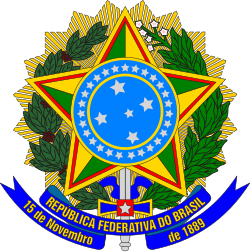| |||||||||||||||||
| |||||||||||||||||
 Results by state | |||||||||||||||||
| |||||||||||||||||
| This article is part of a series on the |
 |
|---|
Presidential elections were held in Brazil on 1 March 1910. [1] The result was a victory for Hermes da Fonseca, who received 57% of the vote. Fonseca was supported by several of the most influential Republican parties, whilst his main opponent Ruy Barbosa was supported by the Civilist Campaign, a movement opposed to da Fonseca. [2] After the election da Fonseca was also supported by the Conservative Republican Party. [2]

